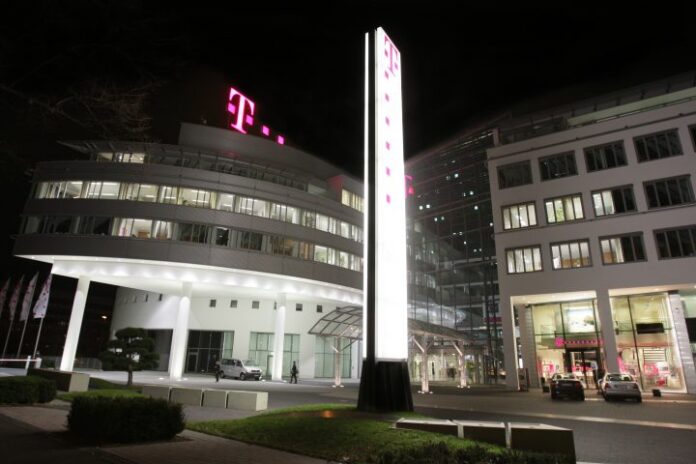DT ended June with 41.3M mobile subscribers in the German market; revenue up, net profit down
German telecommunications group Deutsche Telekom posted revenue of 17.81 billion euros ($19.86 billion) in the second quarter of 2016, surging 2.2% year-on-year. The operator’s net profits for the quarter reached 621 million euros, down 12.8% vs. the year-ago quarter.
Second-quarter earnings before interest, taxes, depreciation and amortization totaled 4.69 billion euros, up 3.6% compared to Q2 2015, while overall capital expenditures for the period reached 2.70 billion euros, down 37.6%.
In Germany, Deutsche Telekom posted revenue of 5.40 billion euros in the second quarter, down 3.1% year-on-year. The telco ended June with 41.3 million mobile customers in the German market. The telco said that LTE coverage in Germany increased by 6 percentage points within a year to 91%
In the United States, where Deutsche Telekom controls mobile operator T-Mobile US, total revenue reached 8.19 billion euros in Q2, climbing 10.1% compared to 7.44 billion euros in Q2 2015.
T-Mobile US ended June with 67.3 million customers, up 2.9% year-on-year. During the second quarter, the operator added 1.88 million customers. LTE network coverage in the U.S. market increased by around 20 million people year-on-year to 311 million, the German telco said.
Deutsche Telekom’s European operations recorded revenue of 3.10 billion euros in the second quarter, down 3.2% year-on-year. The telco’s regional operations include Austria, Croatia, Netherlands, Czech Republic, Greece, Hungary, Poland, Romania and Slovakia.
In Europe – excluding Germany – Deutsche Telekom had 52.2 million mobile subscribers at the end of June.
Deutsche Telekom opens first production site for pan-European network in Hungary
In related news, Deutsche Telekom opened its first production site for its pan-European network in Budapest, Hungary’s capital.
The production site in Hungary will be fully operational and ready to run the first services for all European subsidiaries by the end of 2016. The German company plans to open two additional sites in Poland and Greece during 2017.
“Within the pan-European network, individual services like [text messaging], voicemail or email will be provided for all countries in the form of product building-block modules. Each country can put these building blocks together in ways that result in offerings which address the demands of the local markets,” the telco said in a statement.
This new structure will enable Deutsche Telekom to offer newly developed services throughout Europe within just a few days.

